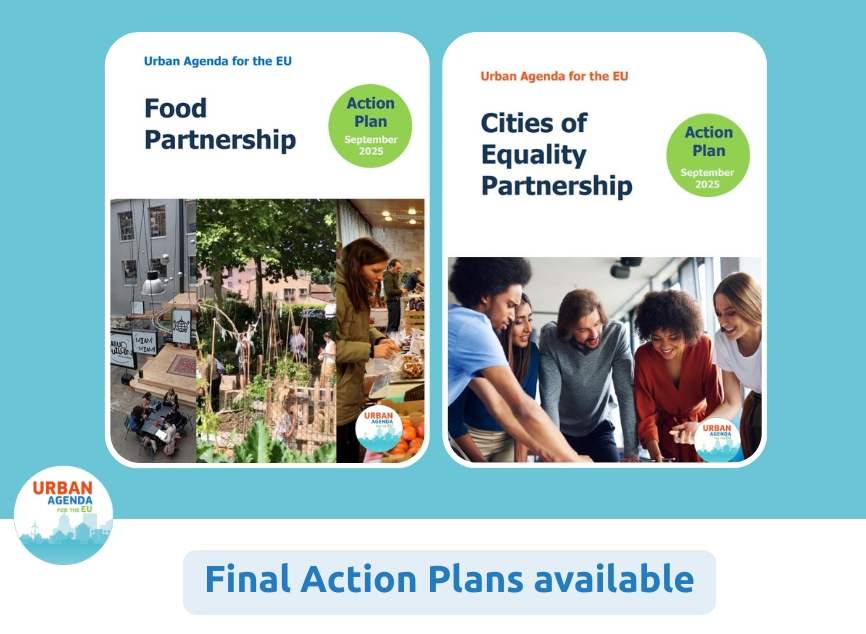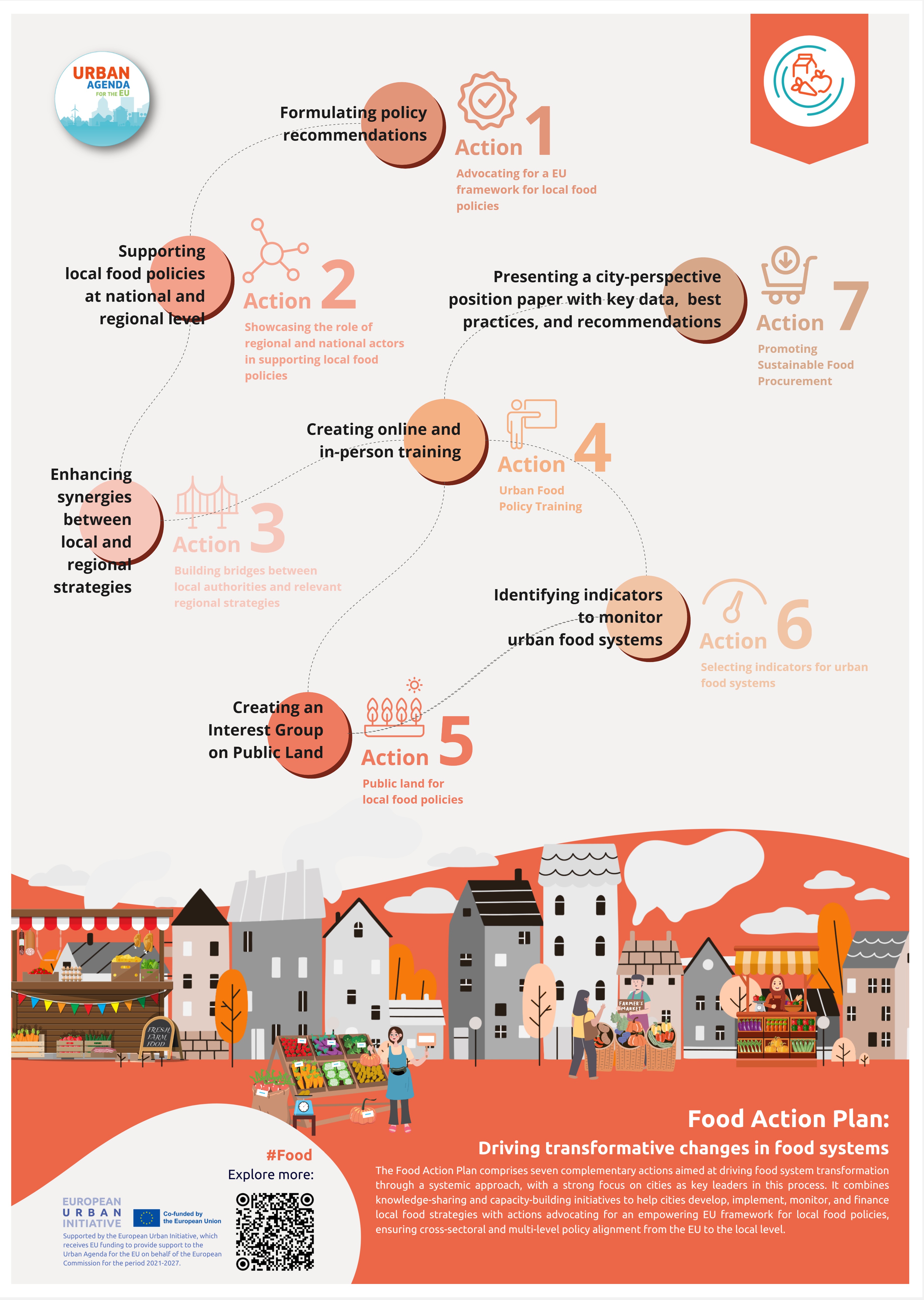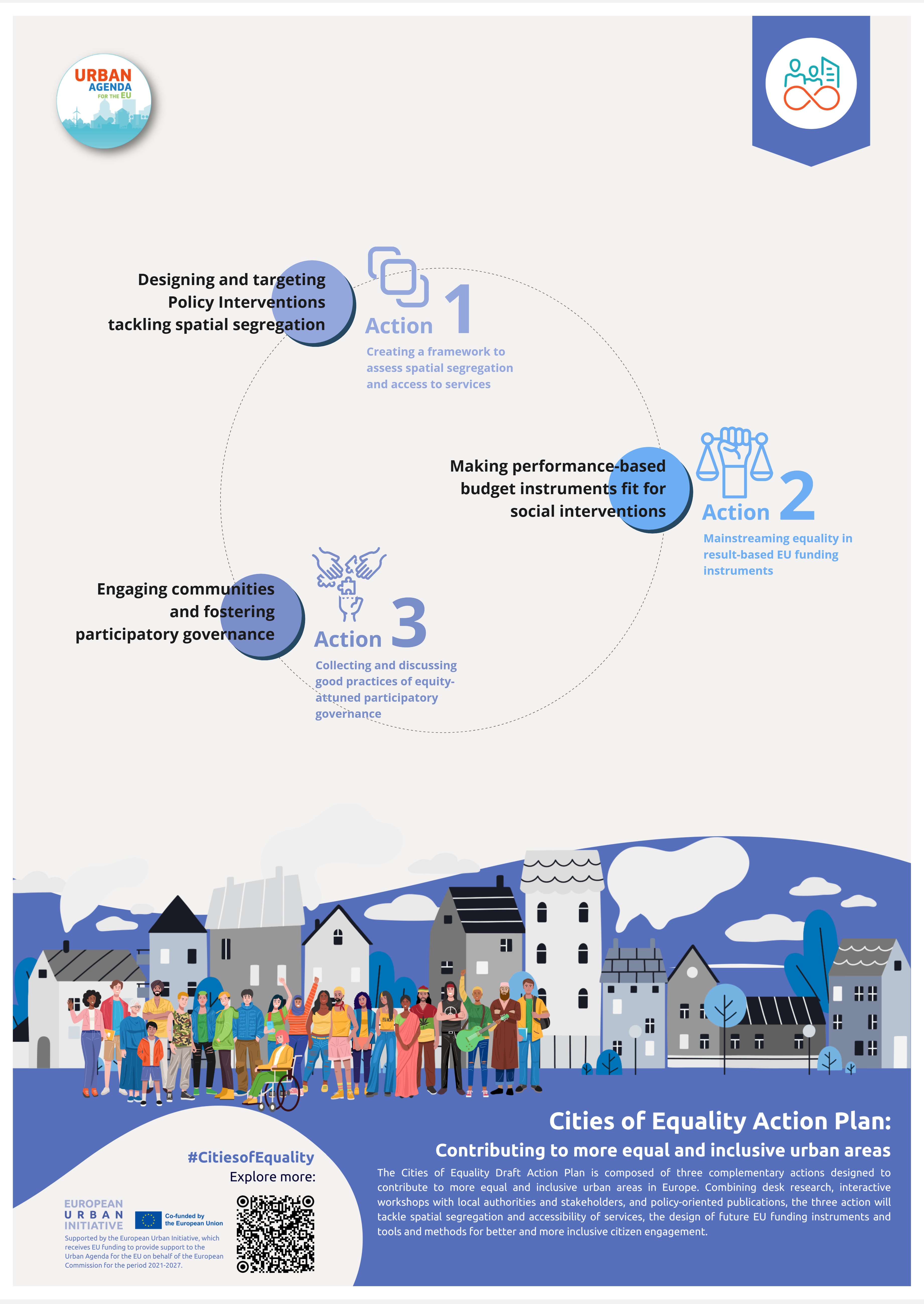
A deep dive into the final Food and Cities of Equality Action Plans
What is the focus of the two Action Plans?
The Food Action Plan takes a systemic approach to transforming food systems, emphasising the role of cities as leaders through innovative urban food policies. It includes both advocacy efforts to strengthen cities’ voices in EU food governance, and knowledge-sharing and capacity-building initiatives to support cities in developing, implementing, monitoring, and financing local food strategies.
The Cities of Equality Action Plan supports European cities in reducing structural inequalities and ensuring inclusive access to services by embedding an intersectional approach across local policies and governance. Centred on better knowledge, better regulation and better funding, the Action Plan tackles three key challenges: understanding and addressing spatial segregation and unequal access to services; strengthening the integration of equality objectives into funding instruments; and expanding meaningful opportunities for all residents - especially those most at risk of exclusion - to meaningfully participate in shaping local policies.
A closer look at the Food Action Plan
The Food Action Plan consists of seven complementary actions designed to drive the transformation of food systems through a systemic approach.
The first three actions concentrate on advocacy at multiple levels:
- At the EU level: empowering the voices of local authorities within EU food governance systems and highlighting national showcase examples.
- At the national and regional level: demonstrating how national and regional actors can engage in collaborative governance, capacity‑building, and networking around local food policies.
- At the regional level: strengthening synergies between local food strategies and regional programmes, with particular emphasis on Smart Specialisation Strategies.
Other actions aim to equip more cities with the knowledge and tools needed to establish and implement local food policies. These activities will address the learning needs of the partner cities in the Food Partnership, as well as other EU cities that currently lack practical knowledge and strategic guidance to develop effective food policies. They will also support cities that are interested in further advancing their work in this area.
The other actions focus on specific challenges tied to sustainable food systems, for instance, promoting sustainable public food procurement as a powerful leverage point for food‑systems transformation, and exploring the use of public land to advance food sovereignty, soil health and agriculture. Moreover, a more transversal action addresses indicators for monitoring urban food systems, with the goal of selecting a limited number of common metrics that can be widely used to track progress and compare conditions and trends across European cities.
Inside the Cities of Equality Action Plan
The Cities of Equality Action Plan brings together national authorities, European institutions, metropolitan areas, municipalities and urban networks to deliver three complementary Actions that aim to strengthen equality in urban policies and practices. The Actions reflect a common ambition: to ensure that no one is left behind in the design, implementation and evaluation of urban policies.
Action 1 builds knowledge by developing a shared framework for collecting disaggregated, inclusive and spatially detailed data on segregation and access to key services. Action 2 uses that evidence to inform better regulation and better funding, providing tools and practical guidance for embedding equality considerations into performance-based financing instruments, especially in the context of post-2027 EU funding. Action 3 strengthens participation and co-governance, enabling cities to design and assess policies together with residents, with a focus on those most at risk of exclusion.
Together, the three Actions help cities understand where inequalities emerge, ensure that current and future funding and regulations address those disparities, and expand democratic spaces where communities can meaningfully shape local policies.
What’s next
The two Partnerships have now entered the implementation phase and will engage the broader network of external stakeholders in the various actions. Stay tuned to the Thematic Partnerships webpages to stay informed about upcoming initiatives and opportunities to get involved:

